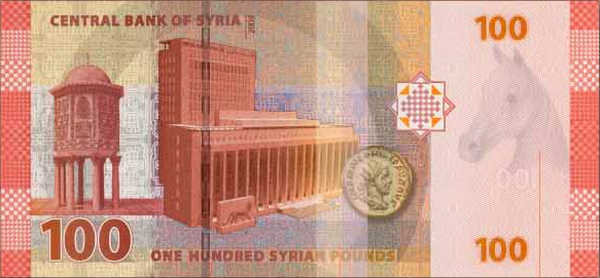The two-year war that ravaged the nation may have come to a temporary end, but that doesn’t seem to have ended the woes of the Syrian government which is desperately trying everything it can to prevent a secondary crisis that could leave the entire country’s economic sector hanging in the balance.
Along with the war that has literally bled the nation dry, the western economic sanctions have contributed to an alarming decrease in the Syrian economy (a 35 percent dip). Prices of food materials and consumer goods have hit the roof, the country’s industrial production has been stalled, nearly half the number of individuals in the country are unemployed, the tourism industry has collapsed, and foreign currency reserves have been exhausted completely! All these could lead to an estimated loss of $80 billion for the nation’s dwindling economy.
The recent decline of the value of the Syrian pound against the American Dollar (315 against the American dollar) forced the government to take immediate measures to prevent this value from dipping further. Some of these measures include jail term for illegal exchange of money (without a proper license) and illegal export of food items to overseas markets.
The decline in the value of the Syrian pound has also left several citizens of the country apprehensive about the worth of their hard earned savings. Many citizens are reportedly, contemplating between converting their savings to American dollars (which would incur huge losses) and keeping their savings intact in the hope that the national currency would regain its value in the international market (quite unlikely in the following years).
The sad thing about this is that the currency traders around the country who opt for the black market value of 315 don’t follow the current official exchange rate of 105 Syrian pounds to the American dollar.
In an attempt to thwart this practice, the Syrian government started an initiative to buy Syrian pounds for the value of 220 to the American dollar, thereby stabilizing the nations’ currency value to an extent.
Residents of certain cities like Damascus were asked to present paid receipts of their utility bills in order to stop losses. Oil imports to the European Union have also been banned, which could potentially cost the country’s economy a staggering $400 million.
However, currency exchange traders feel apprehensive about this move (and any other move) and feel it would not help the government in the long run. Moreover, even though the Syrian pound seems to have stabilized a bit now, these dealers feel the current situation would not last long.





